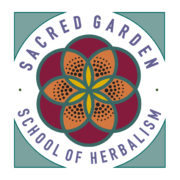UPCOMING EVENTS
Conscious Kids Story & Tea Time
with Lakeja Baylor

Foundational Herbology
9 month program is now enrolling!

Registration closes March 15th
+++++++++++++
Women’s Herbal Wellness Class Series
with Alicia Garza
Grounded Sound Baths
with Terrie Weaver

Fridays February 6th & 13th
5:45 pm
*************
3-Day Immersion: Reading the Body Immersion
with Margi Flint

October 23rd-25th : 10am-4pm
Hold your spot here







Tis the Season for Tisanes (and Relaxation)
/in Herb of the Month /by Ashley DavisTisanes can be made from dried leaves, flowers, fruits, barks, roots and seeds–like chamomile, lemon balm, rose petal, mint and ginger. Flavors vary from sweet, sour, aromatic, bitter and astringent Many herbal tisanes have a relaxing effect and are loaded with antioxidants. They do not contain caffeine.
Speaking of caffeine, I am currently on day 4 of a no-sugar, no caffeine detox and am boy am I dragging! But that just goes to show how much I have been relying on these two substances to give me instant energy to get through my busy life. I knew about the dangers of sugar and caffeine. I regularly teach classes about the physiological impact of these substances, and here I am, witnessing how exhausted my body really feels beneath the surface of the constant go, go, go. The Chinese say that coffee steals energy from tomorrow to use today. It depletes one’s kidney qi, or vital energy reserves. I knew this, but like so many of us I didn’t feel that I had a choice if I was to keep going to make money and try to maintain improve my life for me and my children.
This solstice I am making it a priority to stay out of fight-or-flight mode (stress mode). Stress can be subtle, especially when it is so normalized. Even a “normal” amount of daily worry about money, chores, or getting ready for the holidays depletes our vital energy reserves.
As we enter the darkest time of the year, we are invited to surrender to the unknown. Lay down our burdens. Trust in a greater power to take care of what is most important and let the rest go so that you can rest and replenish. ‘Tis the Season for Replenishment. And relaxing herbal tisanes can help!
Here are a few of my favorite relaxing brews for snuggling up on a wintry day:
Chamomile-Spice Hot Toddy
Heart-Warming Tea
Happy Hour Tea
Hibiscus Berry Tea
Herbal Allies to Support relaxation, replenishment and surrender: